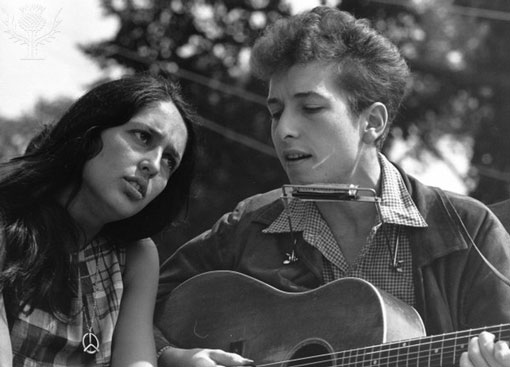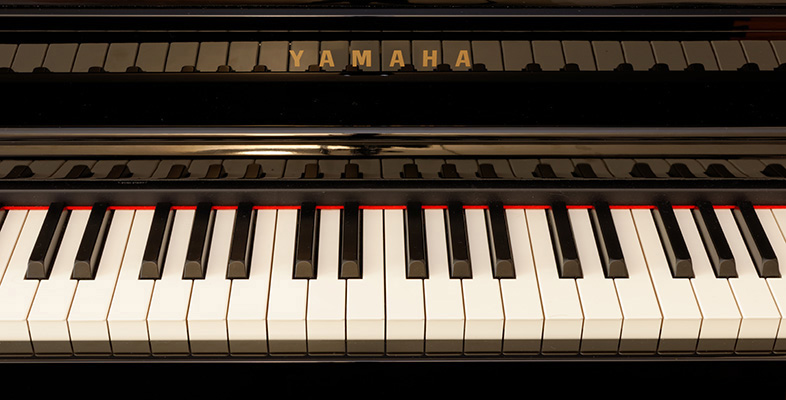4.7 The protest song

1960s America is one of the first places many of us would associate with the protest song – and, if asked to name prominent individuals involved in the writing and performing of such songs, we might point to the singer-songwriters Bob Dylan and Joan Baez. Undoubtedly, the country was a hotbed of political tension, stoked by the war in Vietnam and the pressures of Cold War rivalry with the Soviet Union, while the immense social changes at home brought about by the civil rights movement ensured that race was high on the cultural agenda. Many of these themes are explored in songs that were brought to national attention as part of the enormously successful folk-music revival – a complex mixture of political activism, folk music, and commercialism, in which competing priorities are not always easy to separate.
Activity 20
Watch this film of Joan Baez performing three songs at the BBC in the 1960s. What aspects of her performance strike you as significant?
Discussion
Perhaps the most significant characteristic of her first song “Troubled, and I don’t why” is the strong sense of community she seems to create amongst her audience – fostered through the act of singing together (with the audience joining in the words of the chorus). The words of this first song are topical in their apparent criticism of mainstream media (newspapers, television, movies) and without being specific to any events communicate a sense of group unease. Similarly, she asks her audience to join her in singing “We Shall Overcome”, though no tuition is necessary, such is the simplicity and familiarity of the tune and the words. Baez signals only changes to the initial words of the verses, allowing her to shape the mood of her audience. Her final song is Bob Dylan’s “With God on Our Side” which allows her to more easily showcase her obvious vocal abilities, and distinctive vibrato, though its words are perhaps less audible as a consequence: it also requires a spoken introduction while Baez picks out chords on her guitar, suggesting its message is somewhat more complex and nuanced. There is much more that could be said about these performances, including aspects of her appearance, the set design, and the ways in which she is filmed. Undoubtedly the purity of her voice and her physical beauty also play a key role in the aesthetic experience.
